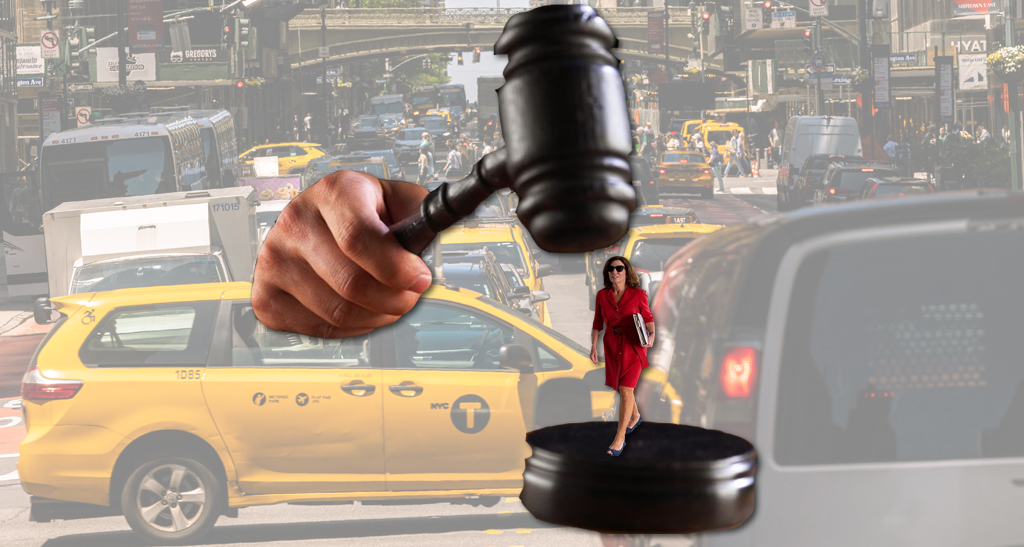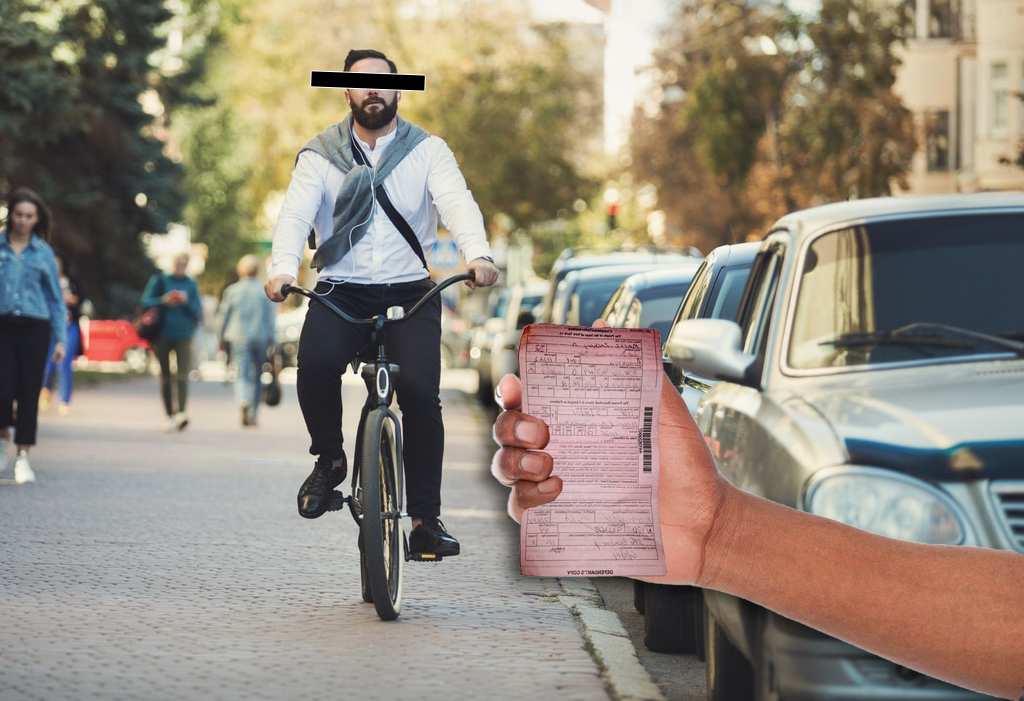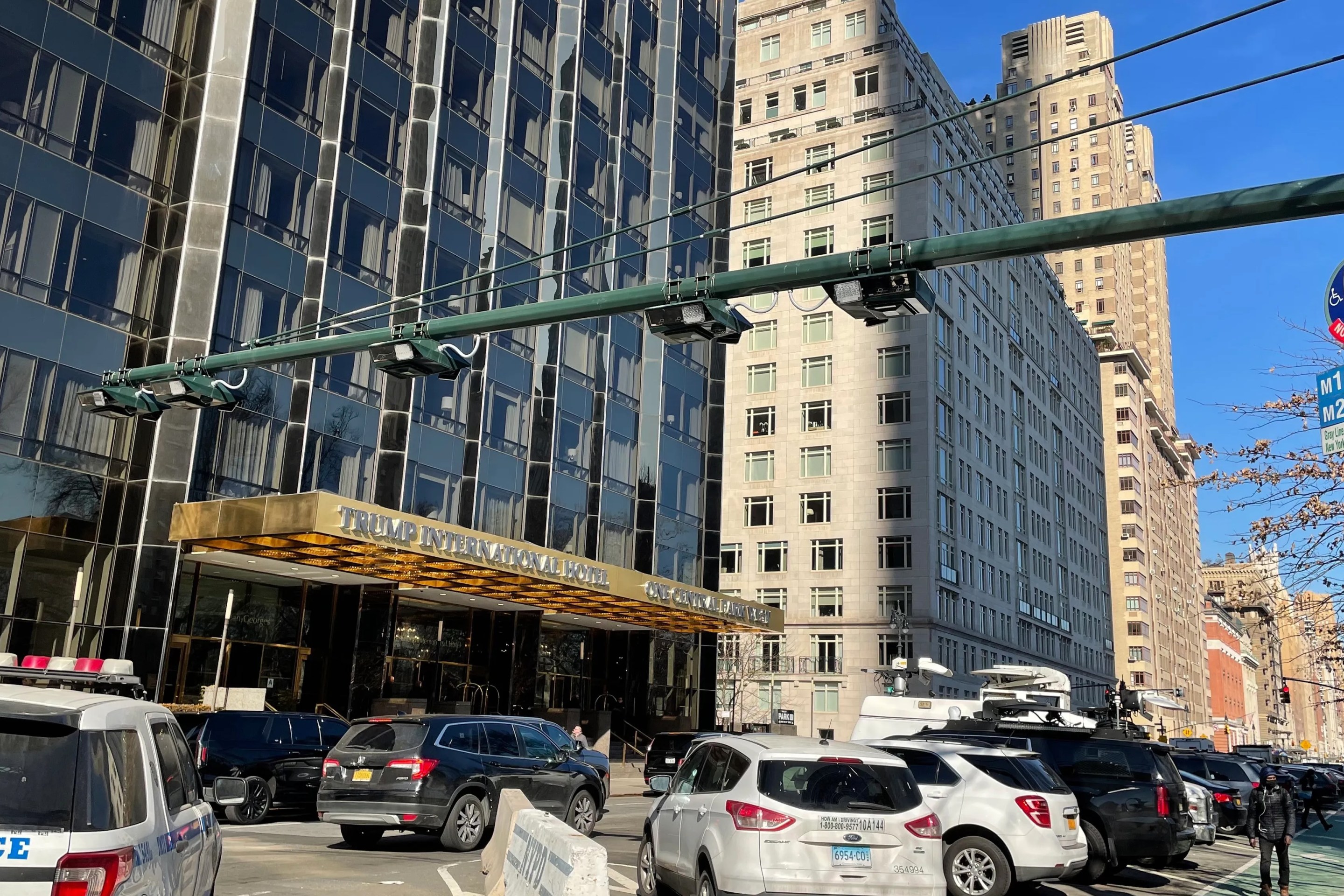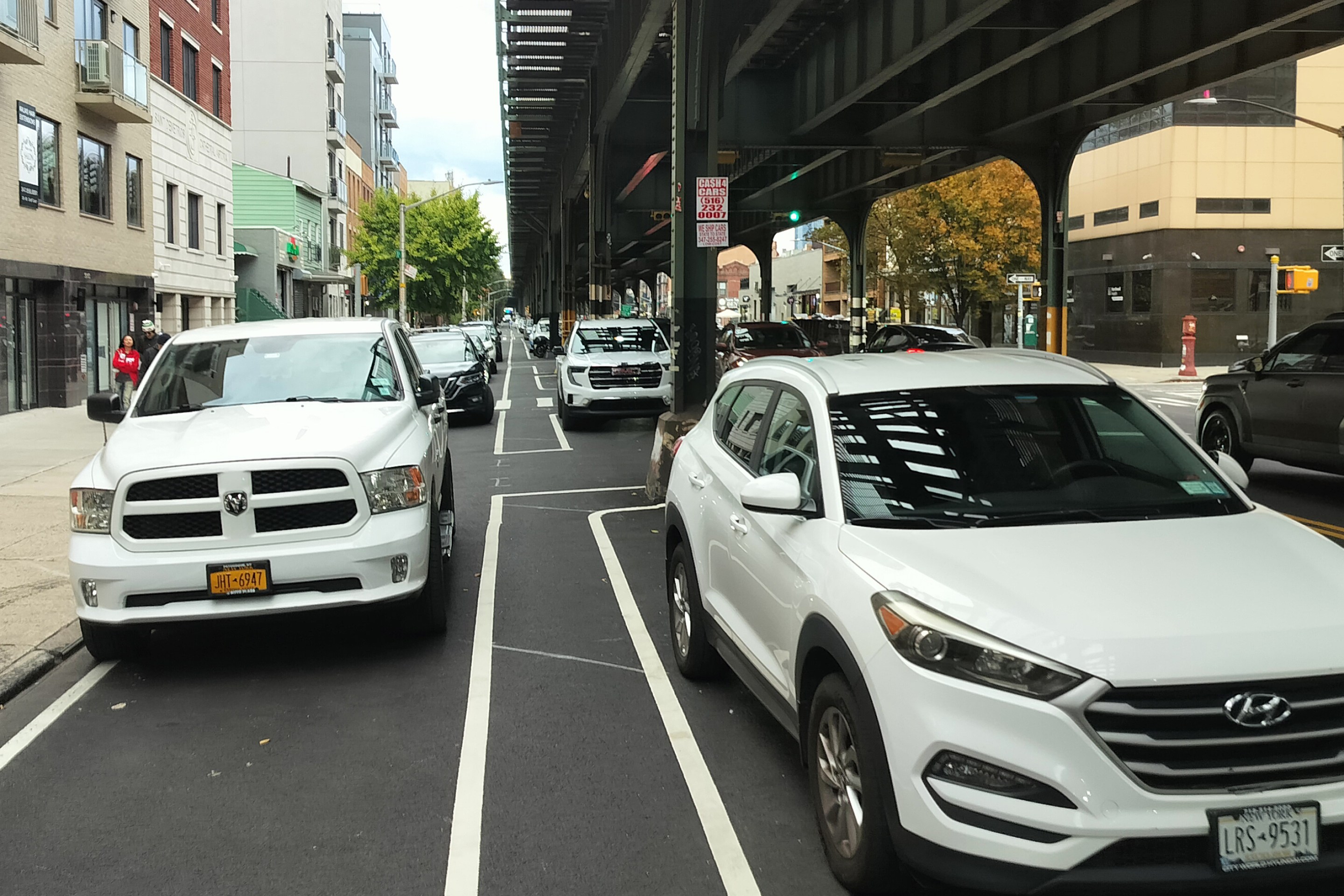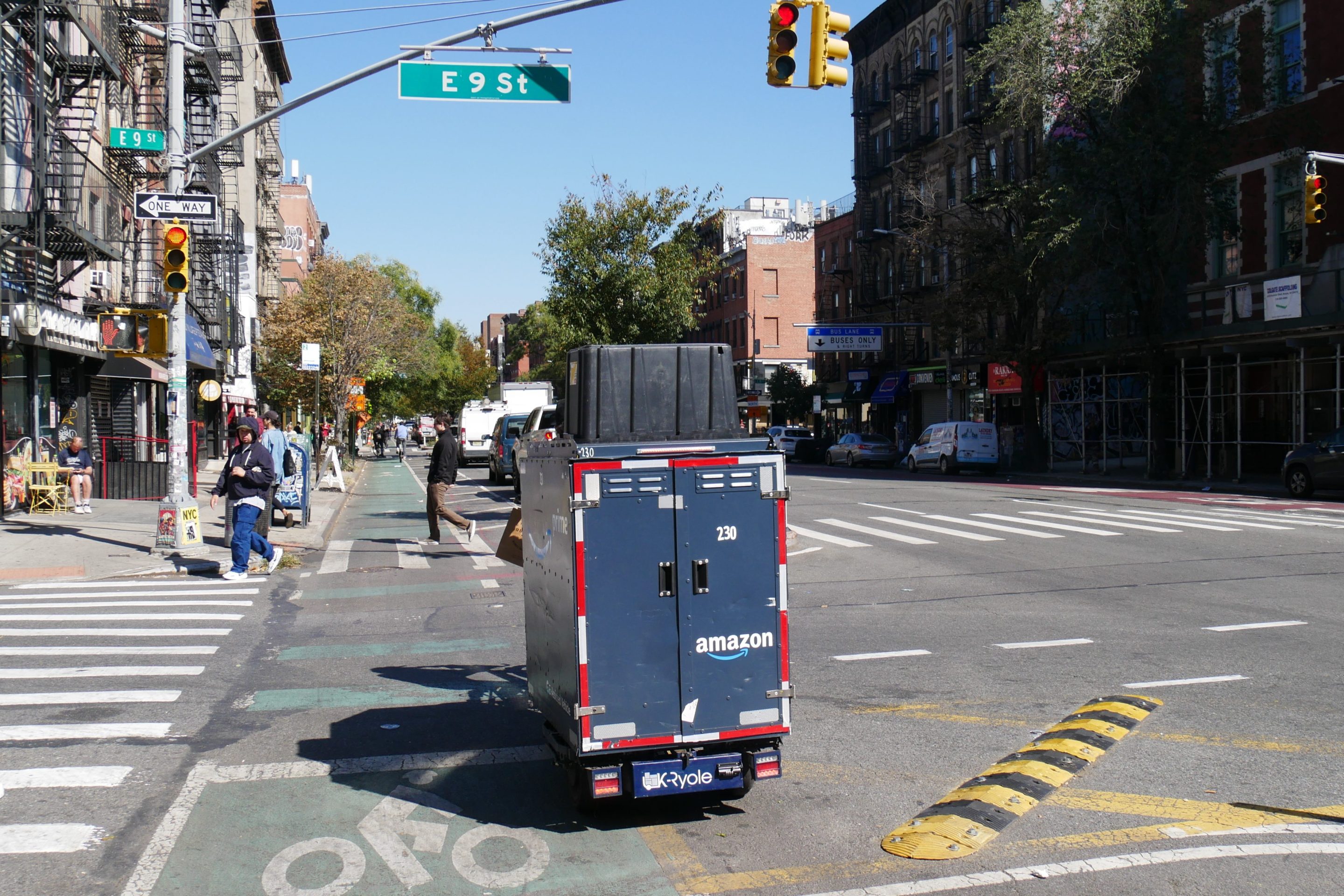Will there be a spate of lawsuits to save congestion pricing now?
Gov. Hochul's last-minute decision to backpedal on congestion pricing opens the floodgates to potential lawsuits, experts and watchdogs said, because New Yorkers could lose out on the state-mandated toll's promise for a cleaner city and a reliable and accessible transit system.
In Hochul's pre-taped video announcement Wednesday, the state's chief executive claimed she remained "fully committed to advancing all the improvements that New Yorkers have been promised," but has provided no details for how to plug a $15-billion funding hole in the MTA's capital plan to fund much-needed upgrades, or how she plans to tame the nation's worst traffic.
Legal experts have already questioned whether the governor even has the authority to do order the MTA to call off the toll under the 2019 congestion pricing law.
The five-year-old tolling plan notoriously triggered lawsuits from opponents on both sides of the Hudson River, but there are several ways in which the Hochul's 11th-hour maneuver could backfire and draw legal heat from backers of the congestion charge.
"There’s a good chance that there’ll be one or more lawsuits," said Michael Gerrard, a leading environmental lawyer and founder and faculty director of the Sabin Center for Climate Change Law at Columbia Law School.
Environmental justice
Congestion pricing would have reduced vehicle traffic into Manhattan's central business district below 60th Street by up to 20 percent, meaning less pollution and noise from gas guzzlers — and two key environmental laws could allow New Yorkers to challenge Hochul for blocking those benefits.
The so-called "Green Amendment" to the state's constitution from 2021 gave New Yorkers the right to "clean air and water, and a healthful environment," and the Climate Leadership and Community Protection Act from 2020 requires state agencies to consider if its decisions "interfere" or are "inconsistent" with the the Empire State's requirement of reducing greenhouse gas emissions by 85 percent by 2050.
"Somebody who lives in the central business district and suffers from congestion and noise and so forth could have standing," Gerrard said.
The MTA also offered localized upgrades to environmental justice communities in the South Bronx as part of the tolling plan, like electrifying refrigeration trucks at Hunts Point, and upgrading parks and green spaces.
"If the MTA has been very specific about particular projects, then someone who might benefit from the projects might also have standing," said Gerrard.
The courts are still interpreting both laws, the legal scholar noted, citing a case where the green amendment is currently being tested in a lawsuit by residents against an upstate landfill.
Access denied
Two years ago, disability rights advocates, the MTA, and one Gov. Hochul celebrated a settlement to make 95 percent of subway stations accessible to people with disabilities by 2055, more than half a century after the passage of the Americans with Disabilities Act.
The legal agreement [PDF] acknowledges that MTA capital funding could fluctuate, but it requires the agency to dedicate "no less" than 14.69 percent of its capital plan to creating accessible stations.
It's unclear what legal recourse for delayed elevators or ramps would be, but Hochul and the MTA are "absolutely on the hook" to make sure the money's there to fund the upgrades on schedule, said a longtime advocate.
"It would be inexcusable if she lets this drift for weeks or months or longer, and that’s what we fear," said Joe Rappaport, executive director at Brooklyn Center for Independence of the Disabled.
Board revolt
Cancelling or stalling congestion pricing must still get the approval of the MTA's 21-member board, which has financial oversight duties under the state's public authorities law — and the panelists could take legal action, as some of their predecessors almost did when a previous pushy governor tried to circumvent the panel.
"By law, they have to sign a statement about their fiduciary duty, it’s almost like an oath with the public authority’s budgeting office," said Rachael Fauss, senior policy advisor at Reinvent Albany. "Defunding themselves of $15 billion cannot be good sound financial policy."
The governor's appointees have a plurality on the board, but mayoral and upstate reps joined forces in 2018 in an effort to block then-Gov. Cuomo's push to bypass the board for spending proposals, even hiring a law firm and drafting — but not filing — a lawsuit.
"This is not completely untrod territory," Fauss said. "It would mean they would have to do something politically difficult."
Perhaps Hochul could even find herself fending off a lawsuit from car drivers ... who were looking forward to less traffic.
